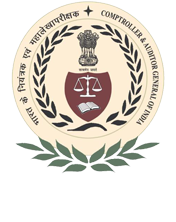Audit Reports

Direct Tax
Report No. 28 of 2013 - Performance Audit on Administration of Penalty and Prosecution of Union Government, Department of Revenue - Direct Taxes
Overview
The Income Tax Act, 1961 (Act) proposes imposition of penalty on an assessee, if the Assessing Officer (AO)/Commissioner of Income Tax-Appeals/Commissioner of Income Tax (CIT) is satisfied that there has been non-compliance with or violation of law and there is no reasonable cause for failure. Chapter XXII of the Act declares certain acts of omission and/or commission as punishable offences. Offences and Prosecution under the Act are read in conjunction with other laws such as Indian Penal Code (IPC), Code of Criminal Procedure (Cr PC) and Indian Evidence Act (IEA).
The Wanchoo Committee Report of 1975 recommended that Income Tax Department (ITD) needs to evolve and pursue vigorous prosecution policies and emphasized that monetary penalties may always not be enough. The White Paper on Black Money of May 2012 by Ministry of Finance (Ministry) described that taxpayers may be willing to take a calculated risk of tax evasion and it may be more effectively deterred by effective prosecution. A committee headed by the Chairman of Central Board of Direct Taxes (CBDT) constituted in May 2011 recommended establishment of special judicial set up within the existing framework as also amendments to various fiscal statutes so that they become stronger. In response to these, ITD has also taken several efforts to streamline and strengthen the deterrent mechanisms against tax evasion in general and income tax in particular.
As penalty and prosecution are important deterrent mechanisms, we felt it necessary to examine the administration and implementation of penalty and prosecution machinery, by the CBDT and its field formations for combating tax evasion. We sought to achieve this by examining current structures, its utilization and effectiveness. Our objective for examining penalty provisions inter alia was to whether the mechanism for administration and levy of penalties for various defaults existed and is functional and had a deterrent effect on tax evasion. In respect of prosecution, our focus was to examine the functional efficiency of the prosecution mechanism at various levels in ITD.
Download Audit Report
-
Table of Contents
 (0.82 MB)
Download
(0.82 MB)
Download
-
Preface
 (0.26 MB)
Download
(0.26 MB)
Download
-
Executive Summary
 (3.07 MB)
Download
(3.07 MB)
Download
-
Summary of Recommendations
 (1.17 MB)
Download
(1.17 MB)
Download
-
Chapter 1 - Introduction
 (5.09 MB)
Download
(5.09 MB)
Download
-
Administration and Levy of Penalty
 (16.55 MB)
Download
(16.55 MB)
Download
-
Annexures
 (3.53 MB)
Download
(3.53 MB)
Download
-
Abbreviations
 (0.51 MB)
Download
(0.51 MB)
Download
-
Chapter 3 - Administration of Prosecution
 (54.61 MB)
Download
(54.61 MB)
Download

